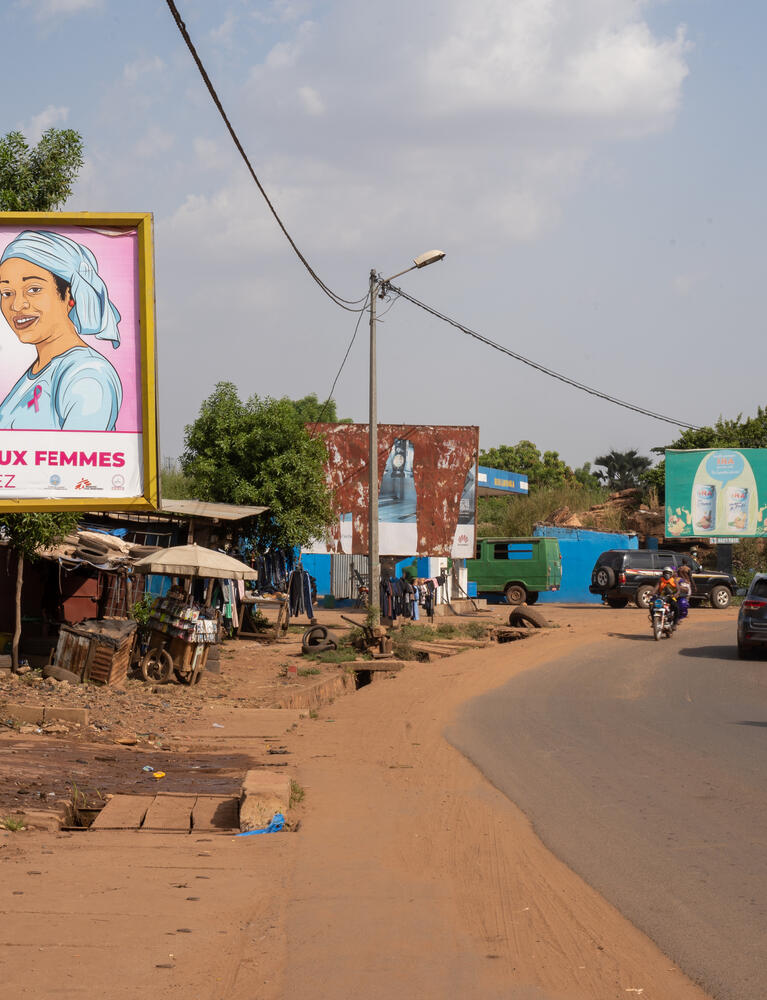The fight against cancer has become a major health issue in Mali. During Pink October, MSF is contributing to an information and action campaign aimed at encouraging as many women as possible to get screened in the capital's health facilities. In late 2018, MSF teams began providing palliative care and support to patients in the oncology and haematology department in Point G hospital. They now also assist with screening, diagnosing and treating patients with breast and cervical cancer in Bamako.
In Mali, where the number of cases of breast cancer is grossly under-estimated (2,450 in 20201), the fight against the disease primarily concerns ensuring access to early detection. "The most common cancer among women in Mali, breast cancer can be treated with good results – as long as it’s diagnosed early enough. Having the right information and getting screened means women can be diagnosed and treated in time,” explains Foura Sassou Madi, MSF’s head of mission in Bamako.
Throughout October 2021, free breast and cervical cancer screening is available to all women in Bamako in 21 health facilities, which include all the city's referral health centres. The programme MSF runs in partnership with the health authorities ensures that when an abnormality is detected, patients are referred to a specialist medical facility. It also pays for the examinations and tests needed to confirm the diagnosis and, when necessary, initiates patients’ treatment.
MSF’s contribution to the Pink October campaign also includes providing medical supplies and technical support, organising training for healthcare personnel and participating in a range of awareness raising initiatives.
While the continent continues to struggle with the damaging effects of infectious diseases such as malaria, tuberculosis and HIV/AIDS, non-communicable diseases – cancer one of the most common – may well in the decades ahead become among the leading causes of death across Africa. The 5-year breast cancer survival rate is still extremely low in sub-Saharan Africa, whereas in France2 it now exceeds 87%.
“Mali has trained health workers, relatively well-equipped facilities and supplies of chemotherapy drugs available for treating the population. Even so, there are still a number of problems. First is the lack of systematic screening, which results in tumours being
diagnosed too late. The majority of women arrive in the advanced stages of the disease,” says Charlotte Ngo, MSF’s oncology advisor.
Despite the efforts Mali’s government has put into cancer treatment, cases of remission are still too far too few. And, the care pathway is not only extremely challenging for patients, but is also unaffordable for a great many families. MSF and the health authorities’ oncology programme is committed to facilitating access to early detection and treatment by strengthening Professor Ibrahim Téguété’s Weekend 70 screening programme, supporting the country's one anatomical pathology laboratory and assisting with surgery, radiotherapy. In the first six months of 2021, 166 women diagnosed with breast cancer and 126 with cervical cancer received support with medical examinations, tests and treatment.



